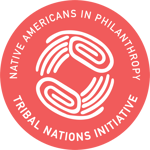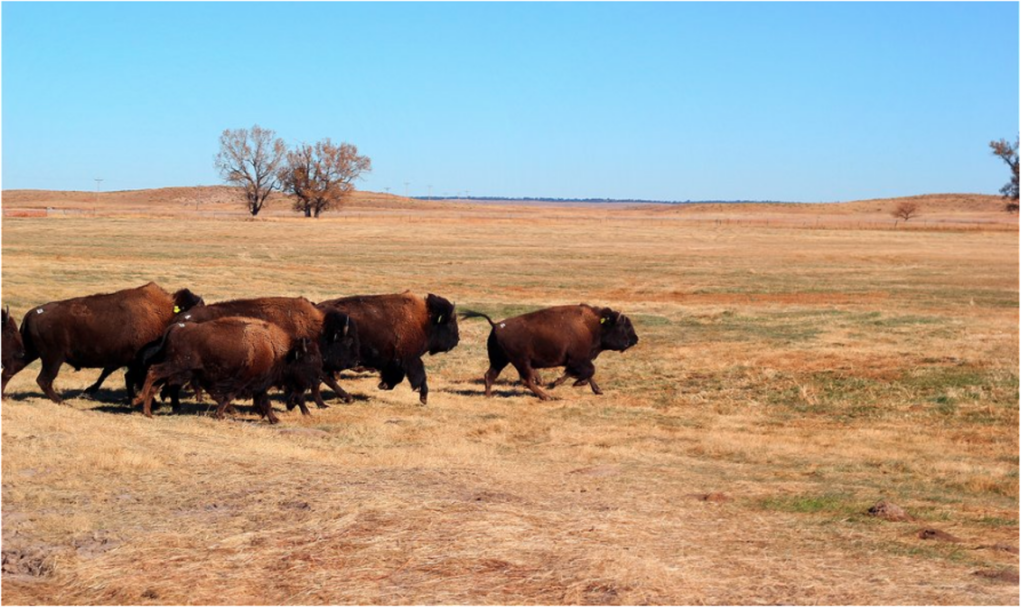
Our work supporting buffalo and grasslands restoration is rooted in this relationship—uplifting efforts that are not only about ecological healing, but also about cultural resurgence, food sovereignty, and sustainable economies.
By supporting Native-led buffalo and grasslands initiatives, we are advancing conservation practices informed by Indigenous knowledge systems, while also supporting Tribal Nations in creating culturally grounded pathways for economic development. These efforts are woven into our broader commitment to Indigenous self-determination and uplifting Native priorities in philanthropy.
From collaborative funding strategies to field building and narrative change, NAP is proud to stand alongside Indigenous communities leading the way in restoring balance between people, animals, and the land.

Pictured: Sicnagu. Largest Native-managed bison herd in the world. In the 19th century, bison were nearly driven to extinction through uncontrolled hunting and a U.S. policy of eradication tied to intentional harm against and control of Tribes. By 1889, only a few hundred wild bison remained. The loss of the keystone species, coupled with land conversion, led to declines of other important grassland wildlife, such as migratory birds and pollinators.
Native Americans in Philanthropy will continue to work to support philanthropic investment and philanthropic support in the U.S. for Tribal governments, their conservation work, and support co-management efforts through its Tribal Nations Conservation Fund & Pledge.
Many global philanthropic investments in Indigenous movements and Native-led initiatives neglect U.S. based Tribes. Despite underfunding, Tribes consistently demonstrate that they are the best stewards of their lands, waterways, and cultural ways of life using Indigenous ecological knowledge and their unique legal and political relationship with the U.S. government.
Native Americans in Philanthropy would like to share our gratitude for the community of partners who have been in solidarity with our work to increase the visibility of Native people and communities, educate funders, establish meaningful relationships and increase funding to Indigenous-led organizations, movements, and Tribal Nations.
Reach out at info@nativephilanthropy.org
Receive vital information on funding opportunities, policy updates, coalitions, supportive materials and key meetings you can participate in to connect with others. For Tribal Nations and philanthropy partners that want to learn more about how to support this work, please contact us at info@nativephilanthropy.org